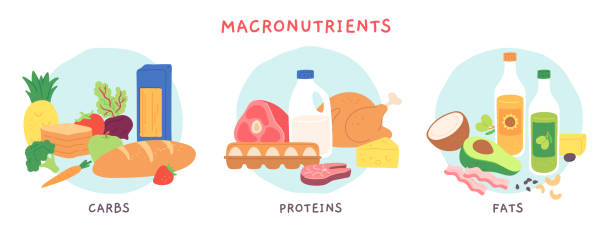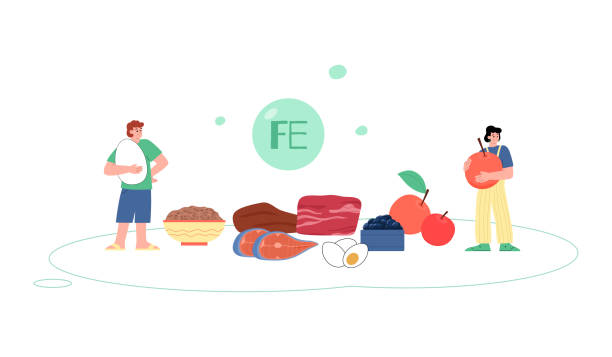Introduction
A balanced diet plays a crucial role in maintaining good health and well-being. It provides our bodies with essential nutrients, vitamins, and minerals needed for optimal functioning. In this article, we will explore the concept of a balanced diet, its key principles, and the numerous benefits it offers.

Table of Contents
1. Understanding the Importance of a Balanced Diet
2. Key Components of a Balanced Diet
3. The Role of Macronutrients
– Carbohydrates
– Proteins
– Fats
4. The Significance of Micronutrients
– Vitamins
– Minerals
5. Incorporating Fiber into Your Diet
6. Hydration: A Vital Component
7. Benefits of a Balanced Diet
8. Tips for Maintaining a Balanced Diet
9. Addressing Common Questions about Balanced Diets
– FAQ 1: How many calories should I consume daily?
– FAQ 2: Can I still enjoy my favorite foods?
– FAQ 3: Should I follow a specific diet plan?
– FAQ 4: Can a balanced diet help with weight loss?
– FAQ 5: Are there any age restrictions for a balanced diet?
10. Conclusion
1. Understanding the Importance of a Balanced Diet
A balanced diet refers to the practice of consuming a variety of foods that provide all the necessary nutrients in the right proportions. It focuses on maintaining an equilibrium between the different food groups to promote optimal health.

2. Key Components of a Balanced Diet
To achieve a balanced diet, it is essential to include the following components:

2.1 Carbohydrates
Carbohydrates are the primary source of energy for our bodies. They are found in foods like grains, legumes, fruits, and vegetables.
2.2 Proteins
Proteins are crucial for the growth, repair, and maintenance of body tissues. Good sources of protein include lean meats, fish, eggs, dairy products, and plant-based alternatives like tofu and legumes.
2.3 Fats
While often associated with negative connotations, fats are an essential part of a balanced diet. Opt for healthier fats found in foods such as avocados, nuts, seeds, and olive oil.
3. The Role of Macronutrients
Macronutrients, namely carbohydrates, proteins, and fats, form the foundation of a balanced diet. Understanding their roles is crucial for maintaining good health.

3.1 Carbohydrates
Carbohydrates provide energy and are divided into two categories: simple and complex carbohydrates. Simple carbohydrates are found in refined sugars, while complex carbohydrates are present in whole grains, vegetables, and fruits.
3.2 Proteins
Proteins are the building blocks of our bodies. They help in repairing and building tissues, producing enzymes and hormones, and supporting the immune system.
3.3 Fats
Fats are necessary for hormone regulation, insulation, and protecting vital organs. However, it is essential to consume them in moderation and choose healthier options.
4. The Significance of Micronutrients
Apart from macronutrients, a balanced diet also includes an adequate intake of micronutrients, which are essential in small amounts for various bodily functions.

4.1 Vitamins
Vitamins are organic compounds that contribute to the overall health of our bodies. They are found in fruits, vegetables, dairy products,
and certain meats.
4.2 Minerals
Minerals are inorganic substances that aid in the proper functioning of our bodies. They can be obtained from foods such as leafy greens, dairy products, nuts, and seeds.
5. Incorporating Fiber into Your Diet
Fiber is an important component of a balanced diet as it promotes healthy digestion, helps maintain stable blood sugar levels, and aids in weight management. Good sources of fiber include whole grains, fruits, vegetables, and legumes.

6. Hydration: A Vital Component
Staying hydrated is often overlooked but is a critical aspect of a balanced diet. Drinking an adequate amount of water daily helps maintain bodily functions, regulates body temperature, and aids in digestion.

7. Benefits of a Balanced Diet
Adopting a balanced diet can have numerous benefits, including:
– Weight management
– Increased energy levels
– Improved mood and mental well-being
– Reduced risk of chronic diseases
– Enhanced immune system function
– Better overall health and longevity

8. Tips for Maintaining a Balanced Diet
To maintain a balanced diet, consider the following tips:
– Plan your meals in advance
– Include a variety of colorful fruits and vegetables
– Opt for whole grains
– Limit processed foods and added sugars
– Control portion sizes
– Practice mindful eating

9. Addressing Common Questions about Balanced Diets
FAQ 1: How many calories should I consume daily?
Caloric needs vary based on age, gender, activity level, and overall health. Consulting a healthcare professional or a registered dietitian can help determine the appropriate caloric intake for your specific needs.
FAQ 2: Can I still enjoy my favorite foods?
Absolutely! A balanced diet allows for occasional indulgences. The key is moderation and making healthier choices overall.
FAQ 3: Should I follow a specific diet plan?
While specific diet plans may work for some individuals, a balanced diet is generally more sustainable and beneficial in the long run. It focuses on overall nutrition and flexibility rather than strict restrictions.
FAQ 4: Can a balanced diet help with weight loss?
Yes, a balanced diet can aid in weight loss when combined with regular physical activity. It promotes healthy eating habits, portion control, and the consumption of nutrient-dense foods.
FAQ 5: Are there any age restrictions for a balanced diet?
A balanced diet is suitable for people of all ages. However, specific dietary needs may vary based on individual circumstances. Consult a healthcare professional or a registered dietitian for personalized advice.
Conclusion
Maintaining a balanced diet is crucial for overall health and well-being. By incorporating a variety of foods from different food groups, we can ensure that our bodies receive the necessary nutrients they need to function optimally. Embrace a balanced diet and enjoy the benefits of improved energy, vitality, and long-term health.

Get best diet plans for you : contact us
WhatsApp https://wa.link/4axu4y
Mail us at – wetogether514@gmail.com

